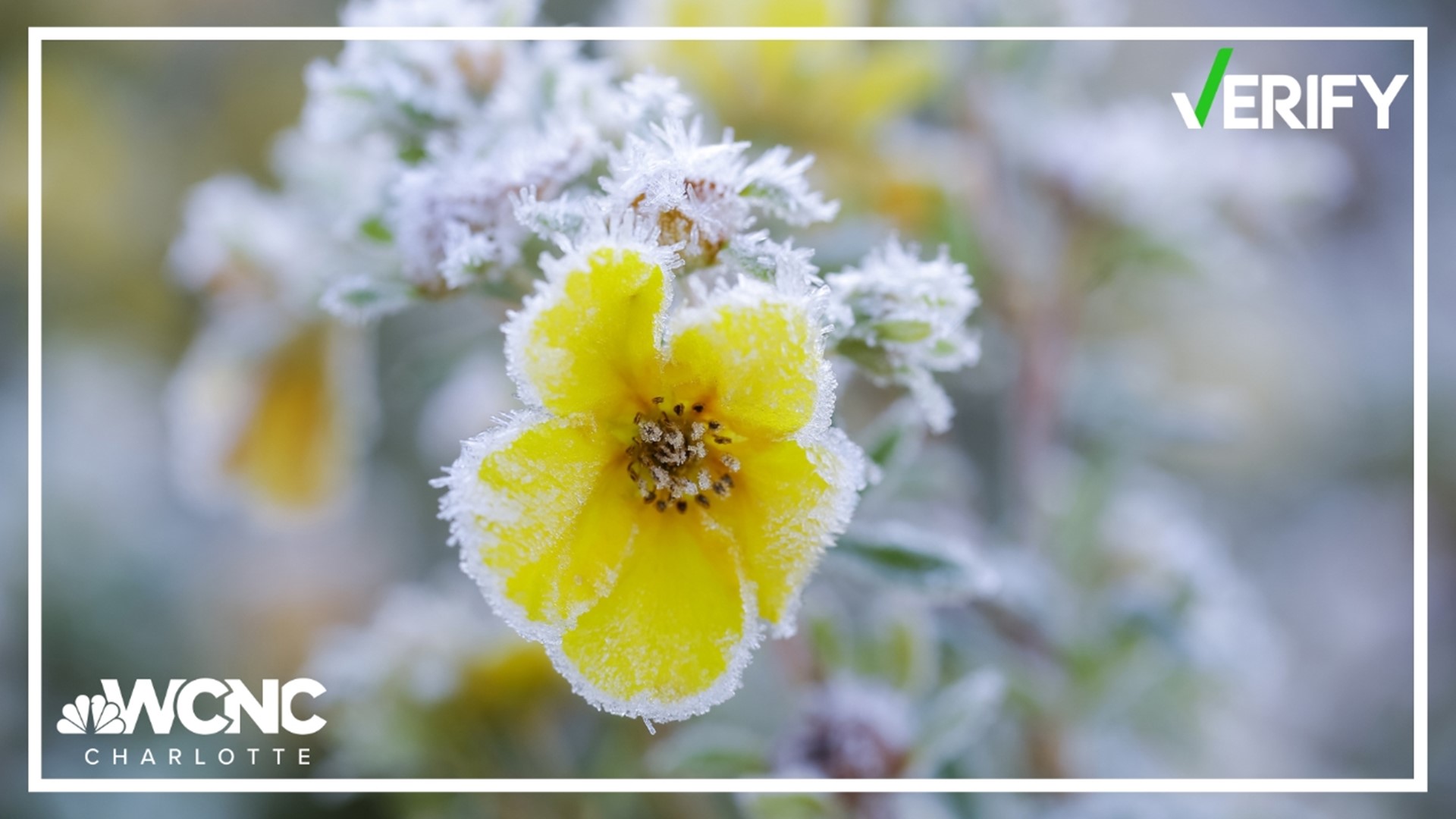CHARLOTTE, N.C. — Heads up gardeners and plant enthusiasts, most of the Charlotte region is bracing for freezing temperatures Wednesday morning.
Our Verify team asked experts your most searched questions related to frost and your plants. Here’s how you can protect your plants as the temperature dips toward freezing.
SOURCES
WHAT WE FOUND
"We're going to see about a 30-degree temperature drop, this is what you can expect in the first freeze of the season," Mulcahy said.
First, let’s define our terms. The National Weather Service said patchy frost can form when temperatures drop below 36 degrees. Widespread frost and a freeze warning occur when temperatures reach below 32 degrees.
Tender plants can die when temperatures reach freezing. Mulcahy said a freeze around this time of year is very typical for the Carolinas
"So it's this time of year is kind of in the sweet spot," he said. "So this one isn't really exceptionally above average but it's kind of a shock in the heart of the system."
For the latest Verify stories, download the WCNC Charlotte mobile app and enable push notifications.
QUESTION 1
Which plants need frost protection?
ANSWER
According to Better Homes and Gardens, tender plants like veggies and herbs that you harvest during the summer are most sensitive to cold weather. So think tomatoes, cucumbers watermelons and pumpkins.
Hardier plants like kale, spinach, Brussels sprouts and carrots can generally withstand temperatures below 26 degrees.
QUESTION 2
How can you protect your plants from frost?
ANSWER
When possible, bring your tender plants indoors, so small container gardens and any plants still in their nursery containers. For the larger plants, bring out the blankets. drape them loosely over your plants supporting the material with stakes as needed. Experts say you should remove the covering by mid-day to ensure your plants don’t overheat.
QUESTION 3
What happens if your plant is damaged by frost? Is there a way to salvage it?
According to the Royal Horticultural Society, don’t just give up on a plant that has been damaged by frost. Many plants can be surprisingly resilient and may rejuvenate from dormant buds at or below soil level. This takes time, so recovery may not be seen until early summer.
WCNC Charlotte's Verify series is all about trying to make a difference in the Carolinas by making sure the community has the correct information. WCNC Charlotte outlines concisely what we know and what we don't know. Sometimes the answer can be surprising. Watch previous stories where we verify social media claims in the YouTube playlist below and subscribe to get updated when new videos are uploaded.
VERIFY is dedicated to helping the public distinguish between true and false information. The VERIFY team, with help from questions submitted by the audience, tracks the spread of stories or claims that need clarification or correction. Have something you want VERIFIED? Text us at 704-329-3600 or visit VERIFY.

